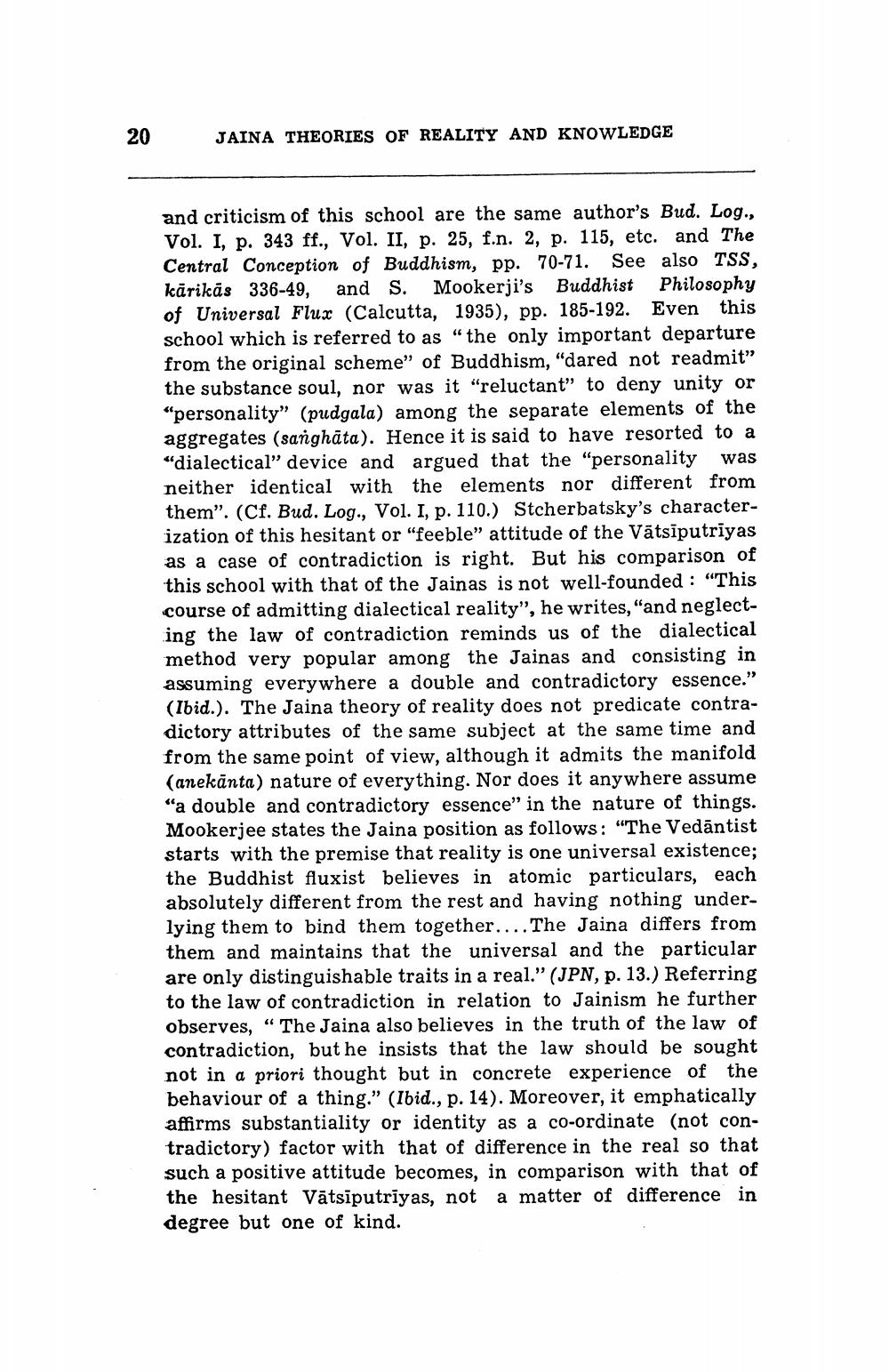________________
20
JAINA THEORIES OF REALITY AND KNOWLEDGE
and criticism of this school are the same author's Bud. Log., Vol. I, p. 343 ff., Vol. II, p. 25, f.n. 2, p. 115, etc. and The Central Conception of Buddhism, pp. 70-71. See also TSS, kārikās 336-49, and S. Mookerji's Buddhist Philosophy of Universal Flux (Calcutta, 1935), pp. 185-192. Even this school which is referred to as "the only important departure from the original scheme” of Buddhism, "dared not readmit” the substance soul, nor was it "reluctant” to deny unity or "personality" (pudgala) among the separate elements of the aggregates (sanghāta). Hence it is said to have resorted to a "dialectical" device and argued that the "personality was neither identical with the elements nor different from them". (Cf. Bud. Log., Vol. I, p. 110.) Stcherbatsky's characterization of this hesitant or "feeble" attitude of the Vātsīputriyas as a case of contradiction is right. But his comparison of this school with that of the Jainas is not well-founded : "This course of admitting dialectical reality”, he writes, "and neglecting the law of contradiction reminds us of the dialectical method very popular among the Jainas and consisting in assuming everywhere a double and contradictory essence." (Ibid.). The Jaina theory of reality does not predicate contradictory attributes of the same subject at the same time and from the same point of view, although it admits the manifold (anekānta) nature of everything. Nor does it anywhere assume "a double and contradictory essence" in the nature of things. Mookerjee states the Jaina position as follows: "The Vedāntist starts with the premise that reality is one universal existence; the Buddhist fluxist believes in atomic particulars, each absolutely different from the rest and having nothing underlying them to bind them together....The Jaina differs from them and maintains that the universal and the particular are only distinguishable traits in a real." (JPN, p. 13.) Referring to the law of contradiction in relation to Jainism he further observes, “The Jaina also believes in the truth of the law of contradiction, but he insists that the law should be sought not in a priori thought but in concrete experience of the behaviour of a thing.” (Ibid., p. 14). Moreover, it emphatically affirms substantiality or identity as a co-ordinate (not contradictory) factor with that of difference in the real so that such a positive attitude becomes, in comparison with that of the hesitant Vätsiputriyas, not a matter of difference in degree but one of kind.




